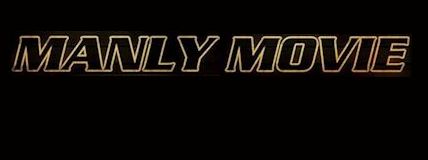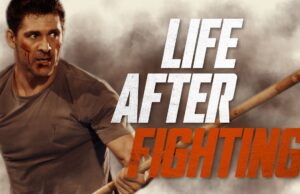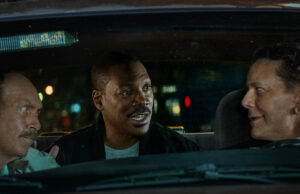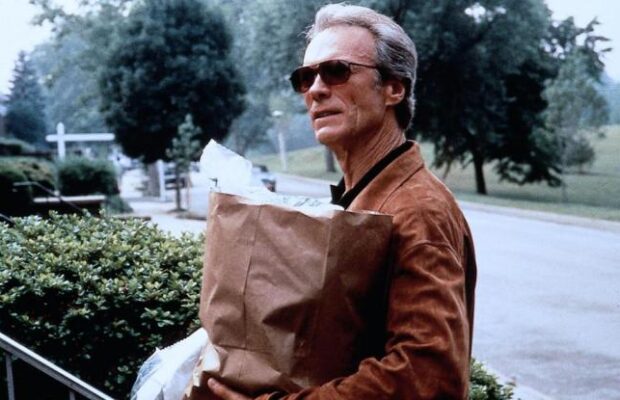REVIEW: Hacksaw Ridge (2016)
With Braveheart, The Passion of the Christ and Apocalypto under his directorial belt, Mel Gibson’s track record as a filmmaker is second to none, and thankfully his staggering winning streak is confidently maintained with 2016’s Hacksaw Ridge. Even though a decade has elapsed since Gibson’s Apocalypto, he makes his return behind the camera without missing a beat, showing yet again why he seriously needs the opportunity to direct more movies. A stunningly vivid World War II picture, Hacksaw Ridge dramatises the heroic story of conscientious objector Desmond Doss (Andrew Garfield), who determinedly set out to serve his country without ever picking up a weapon. Almost impossibly, Gibson transforms what could have been a preachy religious fable into a frequently gripping and emotive war film.
As a young boy, Desmond learned a valuable lesson about the true impact of violence when he nearly killed his brother, and, as a consequence, grows up to be a deeply religious, God-fearing man. Managing to court endearing nurse Dorothy (Teresa Palmer), Desmond chooses to enlist in the United States Army with his brother Harold (Nathaniel Buzolic), much to the dismay of their alcoholic father Tom (Hugo Weaving), who lost all of his friends in battle during WWI. Sent to basic training, Desmond proves to be an excellent recruit, but refuses to participate in rifle training as he sticks to his religious and moral beliefs, aspiring to serve only as a combat medic. This frustrates his platoon staff, with Sergeant Howell (Vince Vaughn) and Captain Glover (Sam Worthington) hoping to break Desmond, while fellow recruits perceive him as a liability who might get them all killed. But Desmond’s resolve cannot be broken, and after his training he’s sent to battle in the Pacific theatre with the rest of his company. Desmond is really put to the test during the vicious battle of Hacksaw Ridge, where he remains determined to save as many men as he possibly can.
The screenplay, which was originally penned by Braveheart scribe Randall Wallace, has ample backstory to work through, and it’s critical to note that this is more of a biography of Desmond as opposed to a more simplistic war movie. Despite a hefty 130-minute runtime, not a single frame feels superfluous here – if anything, the movie could’ve been longer. Every scene serves a purpose, developing Desmond’s character, his romance with Dorothy and his home life, on top of depicting his experiences in the military. And miraculously, thanks to smart pacing and focused filmmaking, none of the build-up feels like homework. Additionally, whereas most dramas these days are grim and dour, Hacksaw Ridge is imbued with glorious gallows humour which feels entirely organic to the story and characters. Real-life soldiers do constantly crack jokes due to the nature of their job, after all, and Gibson recognises this. To be sure, not much dimension is given to the Japanese side, but such an angle is simply not necessary – it would have added too much narrative flab, and above all taken away from the story’s central focus. The movie does observe Desmond being kind to the wounded Japanese, which is sufficient in this aspect.
Gibson is no stranger to war movies, but this is the filmmaker’s first time tackling more modern warfare, with guns and canons rather than the swords and sandals of Braveheart. Frankly, it’s a match made in cinematic heaven, leaving us to wonder why the hell it took so long for him to tackle this sort of thing. The combat sequences are a perfect fit for Gibson’s ultraviolent tendencies, and he absolutely goes for broke here. Working with the freedom of an R rating, the notoriously bloody Battle of Okinawa is done justice on-screen, with the viscerally exciting bloodshed even topping the genre’s granddaddy, 1998’s Saving Private Ryan, in terms of sheer realism. Gibson underscores the fragility of human life on the battlefield, showing bodies being obliterated by explosions and bullets, yet it’s executed with enough tact to prevent the movie from feeling like tasteless gore porn. Gibson does play up aspects of the fighting for dramatic effect, and there is some use of slow motion to underscore the gore and brutality, but it all works in the context of this story, and above all makes for thoroughly riveting viewing. Gibson thankfully relies more on practical effects, which creates a tangible aesthetic. It’s apparent that some digital effects were used for blood, but it’s never distracting or phoney. Hacksaw Ridge looks like a big-budget, $100 million blockbuster with its rich period detail and slick technical presentation, yet it was achieved for a scant $40 million.
Even though shooting on celluloid usually generates a richer cinematic texture for period films of this ilk, Simon Duggan’s digital photography here is stunning nevertheless, and impeccably complemented by the exceptional original score by Rupert Gregson-Williams. The battle sequences are captured with gorgeous finesse and steady camerawork, demonstrating that shaky-cam is not always needed in flicks like this, and allowing us to take in what’s happening on-screen without getting a migraine. Contrary to what some of the foolish critics have decried, the graphic bloodshed is wholly necessary here, solidifying the story’s core anti-war message, and above all emphasising Doss’ sheer bravery on the battlefield. Indeed, watering down the violence would only dilute the movie’s impact. Hacksaw Ridge is an unforgettable experience, inspecting Desmond’s faith and love for God through his actions in battle, with nothing in the way of tedious sermonising.
Garfield was an awful Spider-Man, but he’s superb as Desmond Doss, showing that his capable performances in 99 Homes and The Social Network were not just flukes. Espousing a thick but nevertheless convincing Southern accent, Garfield fully encompasses the role and never loses focus. Alongside him, Australian actress Palmer is endearing as Desmond’s love interest, and it really works in the film’s favour that the central romance is both believable and easy to become invested in. Meanwhile, Worthington makes for a believable military captain despite his inconsistent accent, and Vaughn steals his every scene as a dedicated sergeant. Vaughn has never had much luck in dramatic roles (True Detective, Psycho), but his character here is gifted with an arsenal of one-liners, and his towering figure lends him further credibility. Also worth mentioning is Weaving, who turns in a remarkable performance as Thomas Doss, essaying a pained alcoholic with impressive assurance. There’s nary a weak link on the acting front, despite the distinct shortage of American thespians.
Affecting and powerful, Hacksaw Ridge is the movie of the year. It may be early into Oscar season, but there’s no chance it will not be beaten – it’s the greatest motion picture of 2016, and one of the best movies of the decade. The story of Desmond Doss absolutely needed to be told, and it’s satisfying to behold such a phenomenal motion picture after many decades of attempts to get it made. Hacksaw Ridge may be corny at times, but Gibson commits to the material with utmost sincerity. The movie even closes with archival footage and interviews of the real people of this story, which serves as an effective footnote. Hacksaw Ridge is Gibson’s best movie to date, and that’s a big call.
















49 Comments